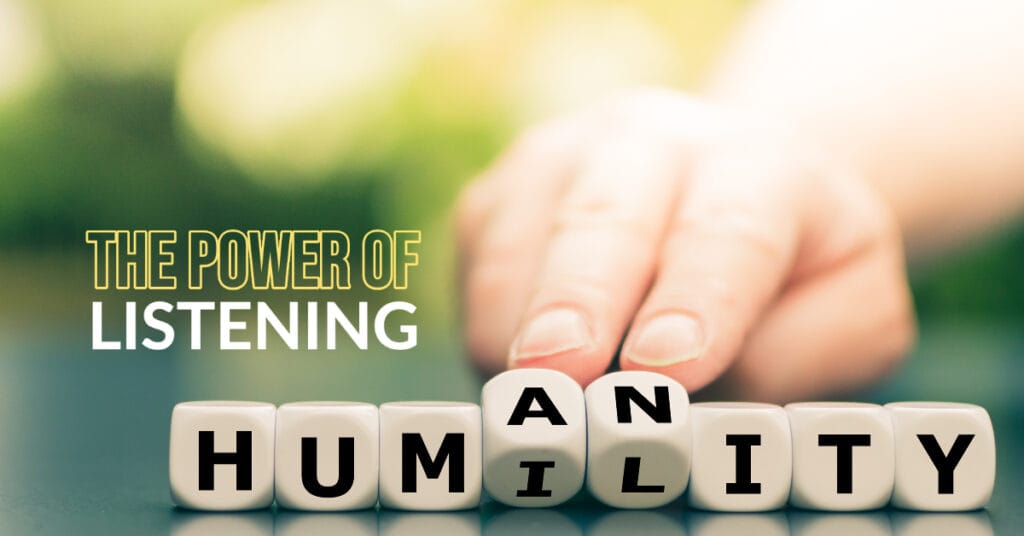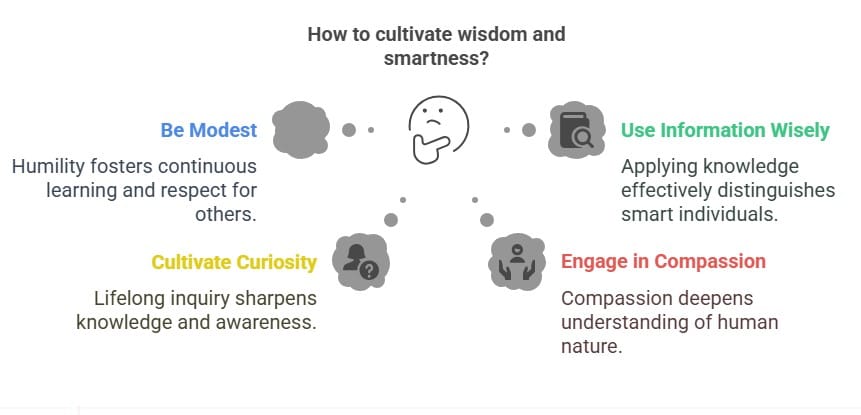True smartness and wisdom go far beyond simply collecting information. They are deeply rooted in humility, life experiences, compassion, and continuous curiosity. A truly wise person understands that knowing nothing opens the door to endless learning. Rather than showing off knowledge, they listen, reflect, and act with moral clarity. Wisdom grows not from books alone, but from facing life’s challenges with resilience and kindness. Smartness without empathy is incomplete; true wisdom blends knowledge with understanding and virtue. It is a lifelong journey of growth, awareness, and embracing new opportunities for learning.
The Real Core of Wisdom and Smartness
People sometimes mix information with wisdom or smartness in the hectic environment of today. Still, the real meaning of wisdom and intelligence is not found in information accumulation by itself. This is a characteristic that explores moral integrity, life events, and knowledge beyond facts. Emphasizing that actual intelligence results from living with awareness, humility, and a continuous drive to learn, this article investigates the relationship between wisdom and smartness.
True Smartness and Wisdom: Comparatively speaking
Most people have a lot of knowledge in particular disciplines—math, physics, or technology, among others. Their knowledge and experience help them to be commonly regarded as authorities. Still, this does not always indicate they are smart or wise. Though it is only one piece of the jigsaw, knowledge is vital. Using that information with moral clarity, compassion, and humility results in wisdom.
Though knowledge could make one an expert, real wisdom is defined by the application of this knowledge in the pragmatic events of life. Real knowledge, according to a wise person, is not just about learning information but also about grasping the subtleties of life and acting with empathy and understanding.
The Paradox of Smartness
Many people want to seem smart in a society where efficiency and speed are highly appreciated. They could show off their knowledge or their successes. But rather than wisdom, this outward show of intelligence usually indicates insecurity. A really intelligent person stays modest since they understand that knowledge is always something to learn; they do not want to flaunt it.
Real smartness emerges from listening, introspection, and learning from others. Knowing nothing is, in essence, a sign of wisdom since it allows one to pursue more knowledge. We only start to really grasp the environment we live in when we acknowledge our ignorance of everything.
Morality Plays in Wisdom and Smartness
Morality is a fundamental difference that sets wisdom apart from smartness. Wisdom is about choosing with moral responsibility, not only about knowing what to do based on reason. Wisdom-based smartness is compassionately acting and knowing the needs and emotions of others.
In social situations, for instance, a clever individual knows when to talk and when to say nothing. They know when to assist and when to back off. A feature of both wisdom and smartness is this awareness of the needs and emotions of others. It’s about applying information not just for your own benefit but also for the benefit of others.
Value of Listening and Humility
Being smart and sensible requires one to be able to listen, which is among the most important skills. A smart person does not pretend they know everything. They still welcome fresh ideas, particularly those that contradict their present views. Through attentive listening to others, one develops fresh viewpoints that enable them to progress in their academic and personal spheres.
On the other hand, people who express their thoughts quickly without thinking through others’ points of view can pass on important learning chances. Wisdom is realizing that life is a continuous learning road since no one person has all the solutions.

The Function of Wisdom’s Curiosity
Still another vital quality of a knowledgeable and wise person is curiosity. Curiosity is dynamic; knowledge is stationary. It drives a person ahead, pushing them to investigate uncharted territory, probe questions, and pursue closer knowledge. A curious mind seeks more profound truths constantly; it is never happy with surface-level responses.
Since it keeps one conscious of their ignorance, curiosity also encourages one to remain modest. The more you learn, the more you realize how little you know, as the old adage goes. This insight motivates a constant growing attitude.
Creating Harmony with Opponents
One scenario worth thinking about is the age-old wisdom of at least making peace with your adversaries. At first, it might seem contradictory since, after all, why should we give peace with our enemies first priority above our friends? But a wise person knows that often peace with adversaries is more valuable than with friends. Friends are already in line with us; enemies are obstacles that, when handled sensibly, can cause personal development and a better knowledge.
Making peace with adversaries shows the wisdom of seeing what really counts in life—development, harmony, and understanding—instead of chasing flimsy approval or quick successes. This method also stems from moral integrity, which is fundamental for both smartness and wisdom.
Wisdom’s Part Played by Experience
Books or courses can teach knowledge; wisdom is developed by life events. Wisdom results from people overcoming obstacles, experiencing losses, and making difficult decisions. By means of introspection and learning from these encounters, they get insights not possible via texts.
For example, someone might learn about compassion in theory but only through personal experience—that is, by serving someone in need—that actual compassion is grown. Similarly, overcoming difficulty rather than reading about it usually helps one develop resilience.
Cultivating Wisdom and Smartness
How, therefore, may one become wiser and smarter? Here are some useful suggestions:
- Be modest and grounded
Wisdom and smartness are built mostly on humility. A modest individual realizes that they always have more to learn regardless of their knowledge level. Regardless of their position or expertise, they treat people with respect. - Learn How to Use Information
Information alone cannot be accumulated enough. One has to know how to use it deliberately. Using knowledge sensibly distinguishes a clever person from someone who only knows facts in both personal and professional spheres. - Cultivate Your Interest
Foster a lifetime of inquiry. Whether it’s about a brand-new topic, culture, or even your own ideas, always be willing to learn. Curiosity sharpens your knowledge and drives a closer awareness of the planet. - Engage in Compassion
Real smartness results from knowing others and acting compassionately. Showing compassion not only makes others respect you but also helps you to deepen your own view of human nature. - Accept the Opportunities of Life
Though there are many obstacles in life, these events are what enable one to grow wise. Instead of running away from difficult circumstances, approach them with an open eye and a readiness to grow from them.

The Smartness of a Wise Person
A genuine smart and wise person is not one who flashes about their successes. Rather, they let their acts speak for themselves. They do not feel the need to tell others they are knowledgeable or wise; others will know this by their behaviors, choices, and interactions with the surroundings.
Being intelligent and smart is realizing you do not know it all. It implies being ready to pay attention, pick up knowledge, and develop. It implies realizing that your behavior and treatment of people define your wisdom rather than your knowledge.

In Essence, the Lifetime Path of Learning
Ultimately, the quest for knowledge and intelligence is an ongoing path transcending mere data accumulation. It’s about welcoming humility, being receptive to fresh ideas, and using knowledge with compassion and empathy. Real smartness and wisdom are more often determined by your behavior and interactions with people than by your knowledge. Anyone can become wiser in their own particular manner by developing curiosity, empathy, and a passion for personal development.
Frequently Asked Questions
What is the true meaning of smartness and wisdom?
True smartness and wisdom are not just about gathering information; they involve moral values, life experiences, compassion, and continuous learning.
How does humility contribute to wisdom?
Humility allows individuals to recognize that they don’t know everything, making them more open to learning and understanding new perspectives.
Can information alone make someone wise?
No, information alone cannot make someone wise. Wisdom comes from applying knowledge with empathy, moral clarity, and life experience.
Why is curiosity important for being smart and wise?
Curiosity drives a person to seek deeper understanding, stay open-minded, and continuously grow both intellectually and emotionally.
How can one develop true smartness and wisdom?
By staying humble, applying knowledge ethically, nurturing curiosity, showing compassion, and learning from real-life experiences.









